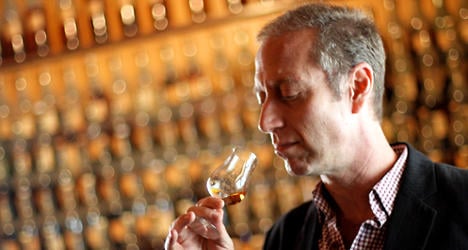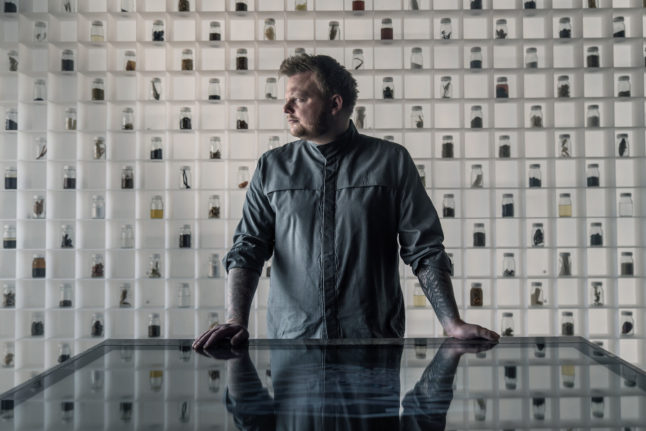David Lebovitz is the author of six books, including the widely acclaimed The Sweet Life in Paris, which tells the story of the ups and downs of his move to the French capital. Lebovitz worked in restaurants from the age of 16 and went on to become an award-winning chef until he left the industry to move to Paris in 1999.
How did you end up in Paris?
I am not really sure. I was at a place in my life where I didn’t have to be or live anywhere in particular. So I thought maybe I’ll move to Paris because I can write there as well as anywhere. I had visited a few times, I had been to cooking school here and I just thought it would be a great place to live. So here I am.
Any regrets?
I kind of wish I had studied French in high school, which would have made it a lot easier for me to move here. I just moved not knowing anything about what it was like to live in another country and thought it would be easy.
What would you advise someone seeking to make a similar move?
I tell people that it’s a great city, but it’s tough. People who want to live in Paris, or anywhere, should forget what it looks like in the movies or on a postcard. You have to be very strong to live here. The people are very brusque.
What do you make of French cuisine?
Well it depends. Classic French cuisine was considered the best and it is amazing when done right. But unfortunately it's fallen out of favour and it’s become harder to find it done well.
France has changed, particularly when it comes to product sourcing, and the way food is procured has become much more modernized. The chefs are not getting their chickens from farms anymore and a number of restaurants are taking shortcuts.
Thankfully, there is a younger generation of chefs and cooks that are more careful and conscientious about what they buy, and are proud of what they are doing.
What’s your favourite classic French dish?
I love confit de canard (duck confit). People ask me "Where can I find a good one in Paris?" But it's a challenge to find a great one because it takes time to make and fry it until it's crispy.
I end up just making it at home now, so I can get it just right – with crisp skin and juicy meat. I'm putting the recipe in my next book, due out in the spring of 2014.
And your favourite classic French dessert?
I love anything with salted caramel, I can't resist a good chocolate éclair, and there's nothing better than a tangy lemon tart.
Is French food culture changing?
Young people in France are not eating the same things as the previous generation. They're not eating as much cream, sugar, or butter. Rich dishes like Gratin Dauphinoise are not as popular as they used to be.
People are busier these days, especially the younger generation, but they've opened themselves up to new foods. Unfortunately young people don’t take three hours for lunch like they used to, so they prefer to go out for fast food, and eat things like take-out sushi and so forth, because they only have half an hour before they have to go back to work.
How do you feel about that?
I feel sorry about that. I spent a lot of time thinking about how the young chefs are responding to the changes and how they are procuring their ingredients these days.
In France, change comes slowly and food culture worldwide is changing so it’s interesting to be here right now and see how France is responding, as a country that has always had such close ties to its agricultural roots.
In the US, food got so bad that there was a reaction. Now you can see the return of farmers' markets, do-it-yourselfers, and so forth, and I feel we are starting to see that bounce back in France, with people opening vegetarian restaurants, making proper coffee, selling fresh salads, and so on.
But has France still maintained much of its dining etiquette?
Yes. For example, you still see people eating in courses and you will still see young French people drinking soda or water out of a cup, whereas we Americans will just pick up the bottle or the can and take a swig.
And you still don’t see French people snacking between meal times like we do in the US. There are certain rules and traditions they won’t change, such as the way to cut cheese or waiters not bringing the bill until you've asked for it.
The French don’t like change and there are some things they won’t want to give up. I find all those rules and traditions interesting.
Which restaurant in Paris do you always take visitors to?
Well it depends who they are, but one of my favourites is Vivant in the tenth arrondissement, which does extremely well-prepared, market-based food.
The owner, Pierre, is actually sourcing amazing products, and he's not just saying he is, like some others do. It’s a great restaurant.
I also like to hang out in wine bars a lot. I like Da Rosa in the sixth arrondissement or Le Garde Robe in the first arrondissement, because their food is very simple and the place is very casual full of young people who come for the charcuterie, cheese plates and natural wines.
Have you ever had any really bad dining experiences here?
I once ordered a tripe cassoulette, which was basically just a big bowl of tripe – I thought it was cassoulet!.
In the US, the waiter probably would have apologized, said it was his fault and brought me something else. But they looked at me, like “Well, you ordered it" – which was a very good, quick French lesson.
I managed to eat a little, politely, but left most of it.
David Lebovitz is currently writing his seventh book. His six previous publications are; Room for Dessert, Ripe for Dessert – both now out of print – The Great Book of Chocolate, The Perfect Scoop, The Sweet Life in Paris and Ready for Dessert.



 Please whitelist us to continue reading.
Please whitelist us to continue reading.
Member comments